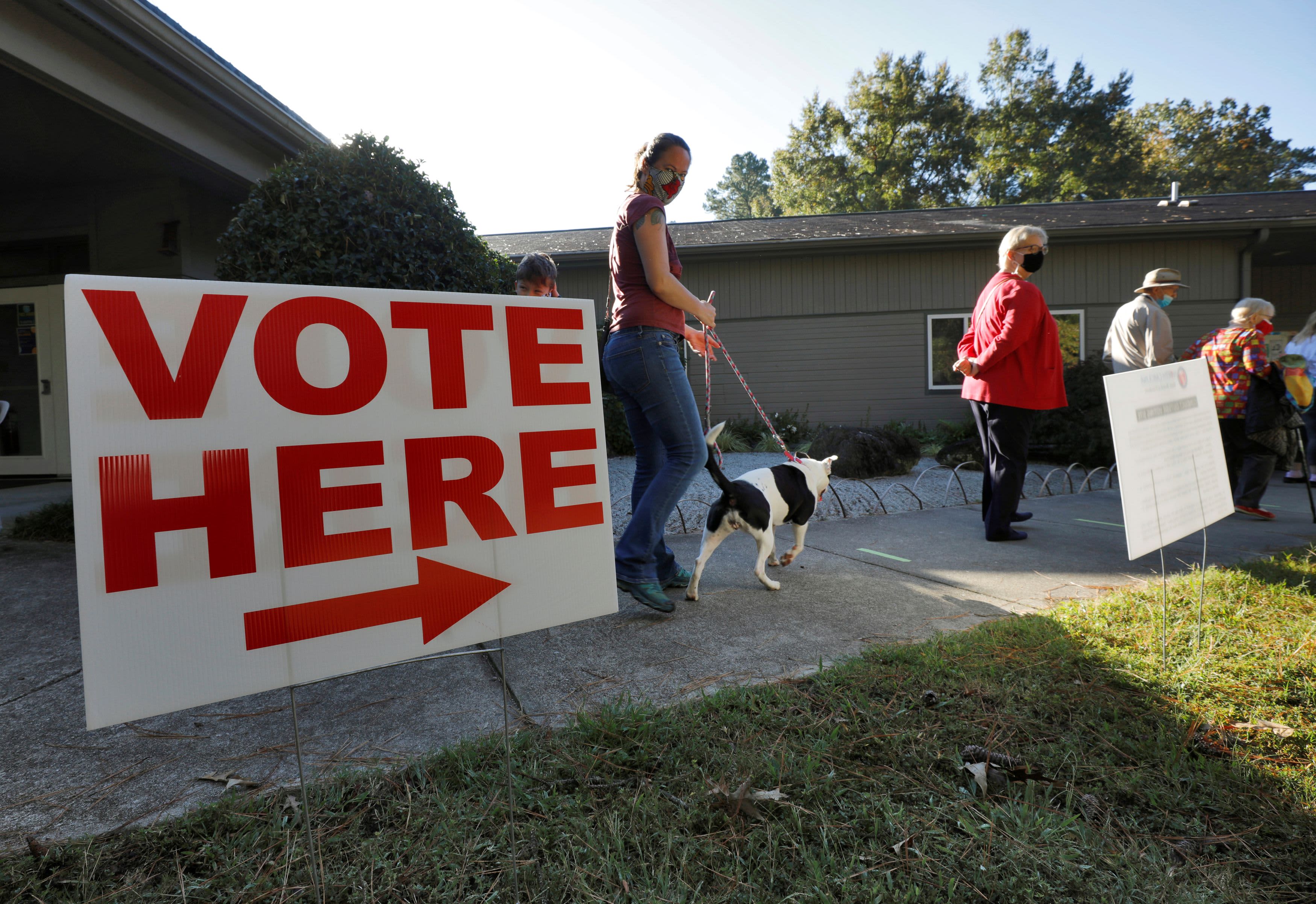
This year’s presidential election will likely be one for the books.
As stocks rose Monday, a positive setup to what could be a wild week for the U.S. market, one top strategist said his historical analysis suggests a notably tough setup for Republican incumbent President Donald Trump heading into Election Day.
Ed Clissold, chief U.S. strategist at Ned Davis Research Group, studies elections going back to 1900 and analyzes their impact on the stock market.
“We looked back since 1900 in years when you’ve had either a recession or a 20% drop in the market, and the incumbent party is 0 for the last 6 times when you’ve had either of those happen,” Clissold told CNBC’s “ETF Edge” on Monday. “Of course, this time, we’ve had both happen.”
“You’d have to go all the way back to Harry Truman in 1948 to find a time when a president overcame that scenario,” he said.
But while the data may not be on the president’s side, 2020 is something of a special case, Clissold said.
“A big question this year is: Does Trump get blamed for it? This is a unique situation,” he said. “The economy was in pretty good shape before Covid, so, is he going to be blamed because of his response or do voters say, ‘Hey, he’s the best guy to lead us forward from here, so, we’re going to give him a pass on what happened,’ and he’ll get reelected? So, you always have to handicap these things for what’s going on this cycle.”
Still, no matter who wins, Clissold’s research shows stocks will continue their march higher.
According to Ned Davis, the Dow Jones Industrial Average’s average yearly gain since 1900 has been 3.8% when a Democrat is in the White House and 1.1% when a Republican is in the White House.
However, the index enjoys its largest average yearly gain — 7.09% — under a Republican-led White House and Congress, a 5.21% gain under a Democratic White House and Republican-controlled Congress, and a 2.96% gain under a Democratic White House and Congress, the research shows.
“I think that we overexaggerate the differences between the parties. This is still a capitalist country. It’s still a democracy,” Clissold said. “As long as you have those things in place, capital can be treated fairly well and investors are rewarded and stocks go up over time.”
Robert Shiller, Sterling professor of economics at Yale University and winner of the 2013 Nobel Prize for Economics, said there was a sense of “danger” in the uncertainty surrounding the election.
“I think that our economy is kind of vulnerable because of a bad [atmosphere] and a loss of trust,” he said in the same “ETF Edge” interview.
“Both sides are claiming the other side is lying, and that has never happened before, so, it’s hard to prove what that will mean. I still think that the situation means a tumultuous market in the coming days. And you have to think about whether you want to put your long-term investment in now or to wait a while for this dust to settle here. And I don’t know the answer. It’s a difficult thing to decide.”




